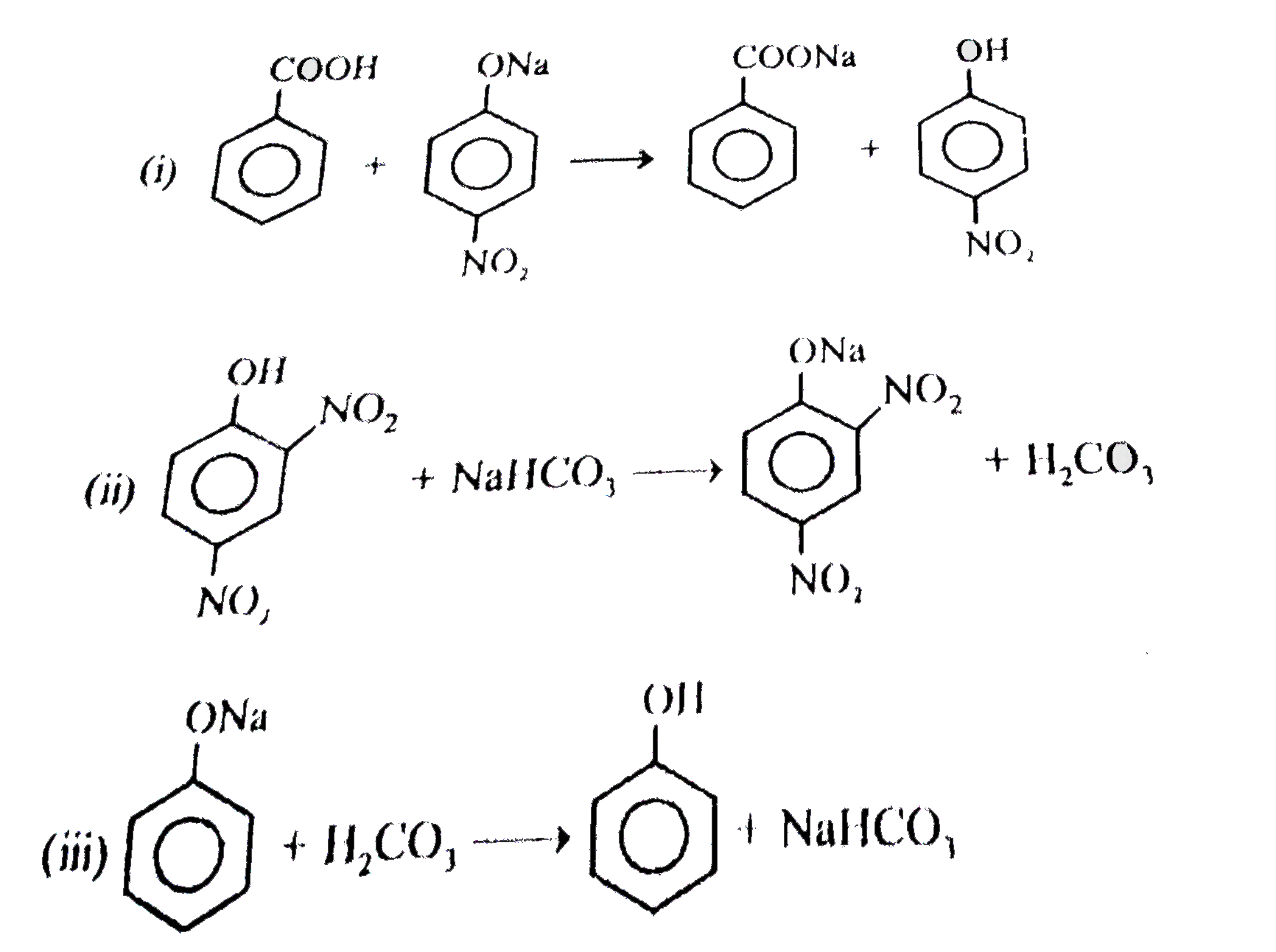Which of the following compounds will react with NaNH2 ?
CH3−C≡CH


ph−O∣∣S∣∣O−OH
The correct Answer is:A, B, C, D
To determine which of the given compounds will react with sodium amide (NaNH₂), we need to understand the nature of sodium amide as a strong base and its ability to deprotonate compounds that have acidic hydrogen atoms. Here’s a step-by-step solution:
Step 1: Identify the Nature of Sodium Amide
Sodium amide (NaNH₂) is a strong base. It can abstract acidic protons (H⁺ ions) from compounds that possess acidic hydrogen atoms.
Step 2: Analyze Each Compound
We will analyze each of the given compounds to see if they contain acidic hydrogen atoms that can be abstracted by NaNH₂.
1. Compound A: Alkyne (e.g., terminal alkyne)
- Terminal alkynes have a hydrogen atom attached to a carbon that is part of a triple bond (C≡C-H). This hydrogen is acidic and can be easily abstracted by NaNH₂ to form an acetylide ion.
- Conclusion: Reacts with NaNH₂.
2. Compound B: Carboxylic Acid
- Carboxylic acids (RCOOH) have a hydrogen atom attached to the hydroxyl group (-OH), which is acidic. NaNH₂ can deprotonate this hydrogen, forming a carboxylate ion.
- Conclusion: Reacts with NaNH₂.
3. Compound C: Phenolic Compound (e.g., p-nitrophenol)
- Phenolic compounds have an -OH group attached to a benzene ring. The hydrogen of the hydroxyl group is slightly acidic due to resonance stabilization. NaNH₂ can abstract this hydrogen.
- Conclusion: Reacts with NaNH₂.
4. Compound D: Sulfonic Acid
- Sulfonic acids (R-SO₃H) are stronger acids than carboxylic acids. The hydrogen atom attached to the sulfonic group is highly acidic and can be abstracted by NaNH₂.
- Conclusion: Reacts with NaNH₂.
Step 3: Final Conclusion
All four compounds (A, B, C, and D) have acidic hydrogen atoms and will react with sodium amide (NaNH₂).
Summary of Results
- Compound A: Reacts with NaNH₂ (terminal alkyne).
- Compound B: Reacts with NaNH₂ (carboxylic acid).
- Compound C: Reacts with NaNH₂ (phenolic compound).
- Compound D: Reacts with NaNH₂ (sulfonic acid).
Final Answer
All options (A, B, C, and D) will react with NaNH₂.
---
Sodium amide (NaNH₂) is a strong base. It can abstract acidic protons (H⁺ ions) from compounds that possess acidic hydrogen atoms.
We will analyze each of the given compounds to see if they contain acidic hydrogen atoms that can be abstracted by NaNH₂.
- Terminal alkynes have a hydrogen atom attached to a carbon that is part of a triple bond (C≡C-H). This hydrogen is acidic and can be easily abstracted by NaNH₂ to form an acetylide ion.
- Conclusion: Reacts with NaNH₂.
- Carboxylic acids (RCOOH) have a hydrogen atom attached to the hydroxyl group (-OH), which is acidic. NaNH₂ can deprotonate this hydrogen, forming a carboxylate ion.
- Conclusion: Reacts with NaNH₂.
- Phenolic compounds have an -OH group attached to a benzene ring. The hydrogen of the hydroxyl group is slightly acidic due to resonance stabilization. NaNH₂ can abstract this hydrogen.
- Conclusion: Reacts with NaNH₂.
- Sulfonic acids (R-SO₃H) are stronger acids than carboxylic acids. The hydrogen atom attached to the sulfonic group is highly acidic and can be abstracted by NaNH₂.
- Conclusion: Reacts with NaNH₂.
All four compounds (A, B, C, and D) have acidic hydrogen atoms and will react with sodium amide (NaNH₂).
- Compound A: Reacts with NaNH₂ (terminal alkyne).
- Compound B: Reacts with NaNH₂ (carboxylic acid).
- Compound C: Reacts with NaNH₂ (phenolic compound).
- Compound D: Reacts with NaNH₂ (sulfonic acid).
All options (A, B, C, and D) will react with NaNH₂.
Similar Questions
Knowledge Check
Which of the following compounds will react with NaHCO3 solution to give sodium salt and carbon dioxide?
AAcetic acidBn-HexanolCPhenolDboth (b) and (c).Which of the following compounds react with HNO2?
A B
B C
C D
D
Which of the following compounds will react with Na to form 4,5-diethyloctane?
ACH3CH2CH2CH2BrBCH3CH2CH2−C∣CH3H−CH2CH2BrCCH3CH2CH2CH2−C∣BrH−CH3DCH3CH2CH2−C∣BrH−CH2CH3
Which of the following compound will not react with I2/OH−.
View SolutionWhich of the following compound react with BF3?
View SolutionObserve the following feasible reaction:

Q. Which of the following compound does not react with NaHCO3.
View SolutionWhich of the following compound react with B2H6?
View SolutionWhich of the following compounds will reacts with ethanolic KCN ?
View Solution
